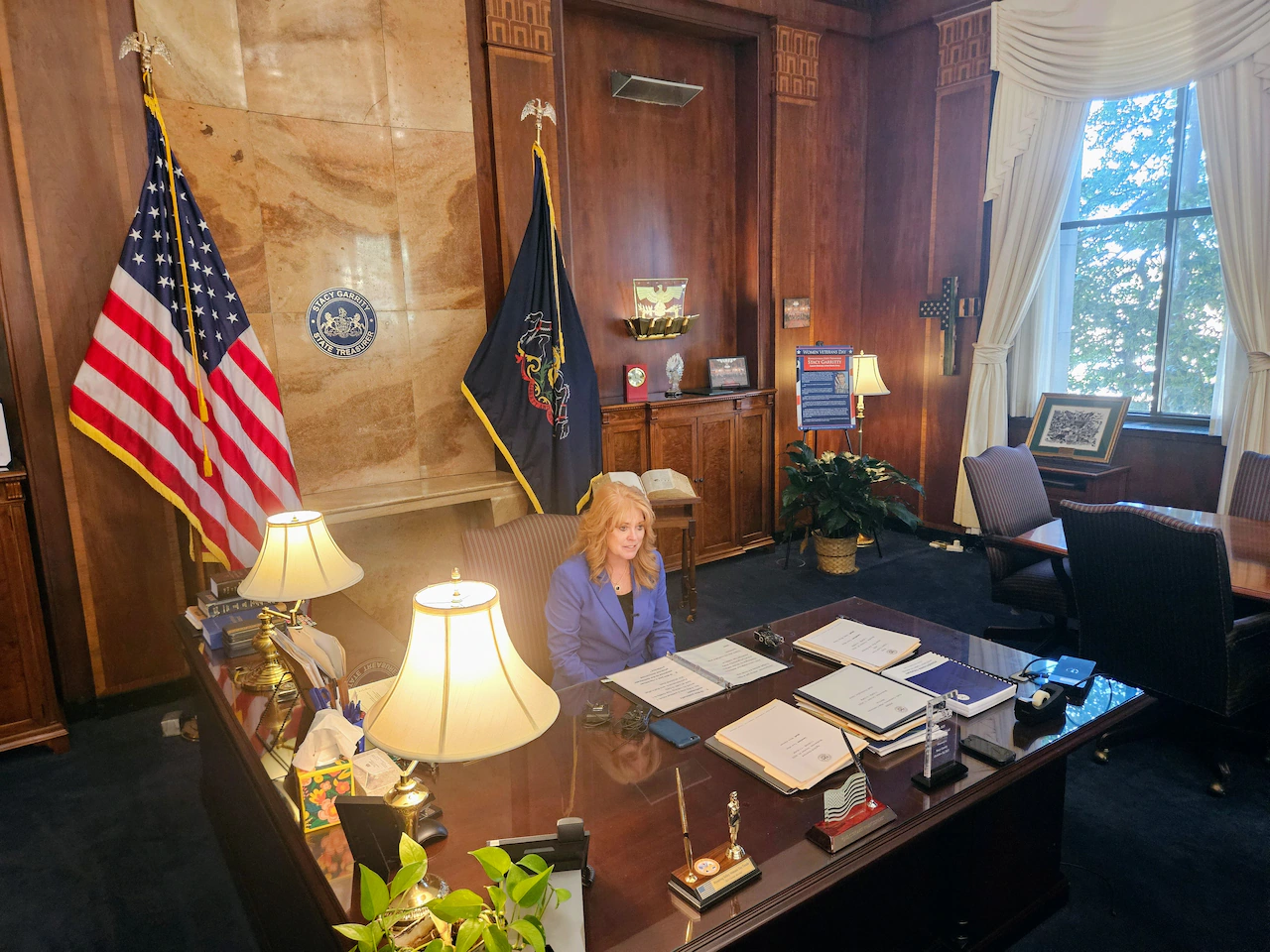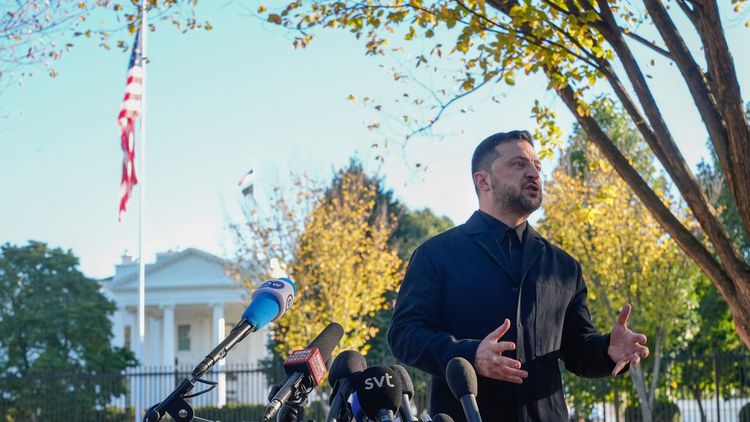Copyright Mechanicsburg Patriot News

State Treasurer Stacy Garrity is saying she’s willing to loan funds from the state’s investment pool to backfill the stoppage of federal food assistance – but Gov. Josh Shapiro is unlikely to take her up on the offer, saying that such a move appears to be impossible within the constraints of the law. In a letter sent on Wednesday, Garrity proposes giving the Shapiro administration a loan from the state’s Short-Term Investment Pool (STIP) to cover the next month of the Supplemental Nutrition Assistance Program (SNAP), given that federal funds for the program are not expected to be paid out for November due to the ongoing shutdown. Roughly 2 million Pennsylvanians receive some benefit from SNAP, historically known as food stamps. The program is federally funded as part of the U.S. Department of Agriculture (USDA), but administered by the state Department of Human Services (DHS). Pennsylvania’s SNAP spending averages $368 million per month by Garrity’s math, a sum which she is proposing to loan from the $21.3 billion currently in the short-term investment pool, which holds the operating cash for multiple commonwealth programs largely in money-market funds. “Our most vulnerable populations should not feel the impact of the lack of a state budget and the federal government shutdown, and this is a way to make sure that those struggling to make ends meet have the support they need for themselves and their families,” Garrity told reporters Wednesday afternoon. The loan would need to carry interest, given that Garrity can only make investment decisions and can’t disburse money on her own unless it’s being paid back. The treasury has already earmarked up to $500 million in STIP funds to make bridge loans to counties and social service agencies that haven’t received funding due to the state budget impasse. However, as first reported by Axios, the USDA issued guidance Oct. 24 stressing that states only have administrative authority for SNAP, and funding authorizations are solely the purview of the federal government. Because of this, according to the USDA, “there is no provision or allowance under current law for states to cover the cost of benefits and be reimbursed.” STIP loans, per Garrity, are backed by future anticipated cash flows, and in this case would need to be repaid once federal SNAP funds start flowing again. But the USDA guidance indicates that federal dollars won’t backfill benefits that states paid for on their own, the governor’s office noted, and thus the loan would not meet STIP investment requirements and would need a state appropriation in order to be paid back, regardless. While Shapiro is extremely concerned about the holdup of SNAP funds, “this proposal is not workable because, as Treasurer Garrity herself notes, a STIP requires future anticipated cash flows, but the USDA has said publicly that states will not be reimbursed for any funds spent covering the cost of benefits,” said Rosie Lapowsky, Shapiro’s press secretary. “Governor Shapiro will not jeopardize the commonwealth’s fiscal standing because Republicans in Congress cannot pass a budget.” The treasury sees the issue as more open-ended, with Garrity spokesman Steve Chizmar saying, “We’re unaware of any legal authority suggesting that the federal government is unable to reimburse states for advancing SNAP benefit payments.” Chizmar pointed to the multi-state lawsuit, which Shapiro is a party to, seeking to force the Trump administration to make November’s SNAP payments out of the USDA’s contingency reserve. Shapiro’s office indicated the suit is an attempt to get the money by Nov. 1 — in which case Garrity’s proposal would be moot — and won’t necessarily involve reimbursement for states that cover the benefits. This is not the first time Garrity’s loan plans have been questioned. Earlier this month, Senate Democrats said they believed her bridge loan program for counties and local agencies was unlawful based on a 2015 opinion from the Treasury; the Treasury has said this opinion wouldn’t apply to interest-bearing loans. Garrity said this week that she has already paid out $21 million in loans as part of the program, benefitting 11 Head Start providers and 36 Pre-K Counts providers as well as the Pennsylvania Coalition to Advance Respect (PCAR), the umbrella group for the state’s rape crisis centers. All are struggling to stay solvent due to a lack of funds during the ongoing state budget impasse, an issue that stands to be compounded due to the simultaneous federal budget stalemate that resulted in the shutdown. Garrity, a Republican, is the likely GOP nominee to challenge Shapiro, a Democrat, in the 2026 governor’s race. Senate Republicans have pushed a piece of legislation to allow her to issue the bridge loans at zero interest, with some Democrats intimating that this was being done purely to raise Garrity’s political profile. The treasurer has said her ideas for loan programs are an honest attempt to help out, saying Wednesday that “if I were playing politics, I’d probably sit back and let everybody continue to fight.” She continued, “But I think that we should always put Pennsylvanians before politics,” and “we could all work together to find a solution.”



